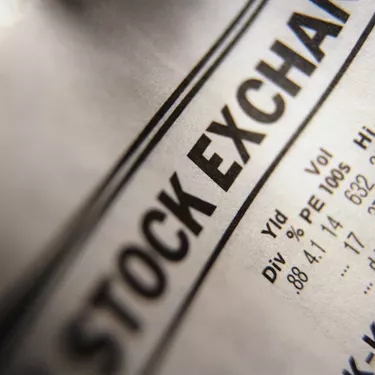
Clearing firms stand as the intermediary between the buyer and the seller during a securities trade. They add stability to the market by ensuring that trades are completed quickly and efficiently. Clearing firms are private corporations that operate under strict government supervision from agencies such as the Securities and Exchange Commission. Many large brokerage firms, including JP Morgan Chase, operate their own clearing firms, which fund their operations primarily by selling and leasing memberships, and charging transaction fees.
Selling Clearing Firm Memberships
Video of the Day
Clearing firms make big money by selling memberships to professional individual traders and corporations. The higher the membership price, the more rights and privileges the member enjoys. At the time of publication, the selling price for a Chicago Mercantile Exchange, or CME, membership was $400,000. Individuals and firms must have their membership application approved by the clearing firm before they can own a membership. Memberships are sold at auction, with the final price determined at the bidding's close.
Video of the Day
Leasing Clearing Firm Memberships
Another way clearing firms make money is by leasing their memberships. Leased memberships appeal to individuals and corporations that want to reduce their trading costs without purchasing an expensive membership. At the time of publication, a CME clearing firm-leased membership cost $1,900 per month, or $22,800 per year. The CME will not allow an individual or corporation to lease a membership until the initial application is approved by the CME.
Charging Clearing Firm Members Transaction Fees
Clearing firms charge their members a transaction fee every time they make a trade. Transaction fees are usually no more than pennies or fractions of a penny that are added to the trading costs. The trading volume determines how much income the clearing firm makes in transaction fees for that day. For example, the Chicago Board of Trade charges individual members a transaction fee of 9 cents for every agricultural commodity futures contract traded. If 250,000 corn contracts are traded, CBOT makes $22,500, which is 250,000 contracts multiplied by 9 cents, in transaction fees for that day.
Charging Brokerage Firms Clearing Fees
A clearing fee is charged every time an entity such as an individual or corporation makes a trade. The trader's brokerage firm is responsible for assessing and collecting the clearing fees. For example, Interactive Brokers charges a clearing fee of $ 0.00020 for each stock share traded. The clearing fee for trading 100 shares is 2 cents (100 multiplied by $0.00020). The brokerage firm lists the amount of the clearing fee separately on the trader's brokerage statement. The clearing fee is imposed no matter which brokerage firm the trader uses.